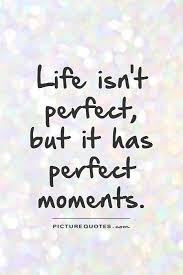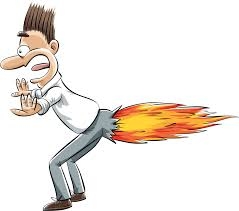Claiming enlightenment
 Mingle
Veteran
Mingle
Veteran
I was having a discussion with a friend the other day about people, human nature and their ego's.
Through the chat she made the claim of somethings like "I am enlightened" and "I have no ego" and I very kindly told her she is full of it.
It was one of those conversations when you feel like you are learning as you are informing someone. When you come out with wisdom you didn't think you had.
I told her "I'm sorry, you are a very nice person but that is quite a claim. No one has no ego and no one is above human nature"
I went on to say how you cannot get rid of your ego and you cannot stop your human nature as she implied. I told her she had an understanding of enlightenment but a very shallow one. I said it is not about getting rid of anything wether it be thoughts or feelings. Taming the ego is not about denying it it is about knowing it, understanding it, FEELING it and being able to sidestep it.
I then went on to say how Buddha never claimed to be above human nature as that would make him more than human. I then asked how he was able to empathize with his followers and teach them if he was simply above human nature himself?
She didn't reply to any of this of course but this reminded me of a great quote "if see the Buddha on the path to enlightenment kill him"
I am now pretty dubious to believe any one who makes similar claims. To claim you are enlightened is to claim you are done so to speak and you are never done. What do you think?




Comments
Yeah... claiming enlightenment is a classic pitfall. Those who claim it generally aren’t, it’s only those who are given it by others who may be it.
People have very different ideas about what "enlightenment" is. Even Buddhists can't agree on it.
Being enlightened is one thing. Being unenlightened is far more effective. In essence the Buddha became a Boddhisattva after awakening.
You are right @Mingle ego free people I have never met or come across. There is too much memory, body, drives, vanity, ultra spiritual delusion etc.
The paradox is that effective transmission of qualities can be achieved to a degree by sleeping sangha. Once we begin to seek truth and break free from our delusions, we begin to recognise qualities. We do not tolerate platitudes and claims of wisdom from those foolish enough to claim wisdom.
http://newbuddhist.com/discussion/8706/i-am-newly-enlightened-anybody-else
My cushion is enlightened but what use is that ...
Endless claims and speculations will not free anyone. I tolerate just about everything. Today's fool may become tomorrows wise man.
Every meditation cushion is scented with its fair share of farts...
That would make a good embroided Buddhist pillow @Kerome
That's a cool little coincidence. I was just reading from Analayo:
I think telling her she was full of it, no matter how polite, was not skillful. But that's your choice.
I think if we all concentrated on bettering ourselves and not finding flaws in others we'd be much better off as a whole.
It's my goal moving forward anyway.
_ /\ _
An unenlightened person may see what they feel is enlightened qualities in the behaviour of another, yet other unenlightened people may not see the same enlightened qualities in them...So who really knows ???
I often wonder if the old saying of "It takes one to know one" applies to Enlightened Beings...
I like the old Zen saying;
"Before Enlightenment chop wood fetch water...After Enlightenment chop wood fetch water"
(However it's also possible an enlightened being would install solar panels & plumbing)
Perhaps Enlightenment is for the Enlightened Being to know and for us unenlightened to find out...
Meanwhile Dogen's approach makes sense...
"Don't practice to 'become' Enlightened-let your practice be the natural expression of your Enlightenment!"
The Buddha did say something along the lines of "Ehipassiko" see for your self and I guess this is what our practice is all about
and I guess this is what our practice is all about 
I may have gone for the classic "nod and smile" approach. I find myself using that a lot when I don't know what to say, particularly when someone makes a really outrageous claim that I know isn't rooted in reality.
HOWEVER
It could be argued that you practiced right speech by not lying. Also, I would say that you skillfully called BS on that person.
Ultimately, I don't know what the right answer is. Best I can say is to just meditate and marinate on it and see what your gut tells you.
I love my job. It's different every day, rewarding, and I like both colleagues and customers alike. The vast majority of which are absolute darlings.
However, every now and then, just occasionally, we get the odd, rare absolute total wuckhead.
And I have trained myself to smile sweetly. Say nothing. serve, take payment,wrap up and end the situation without my having uttered a single word, and the person running out of wind.
Which was basically, the point.
Works like a charm...
The best way to avoid any form of confrontation - is to not get into it in the first place.
Sound plan.
It is also very simple in essence but requires due diligence in practice.
We start with honesty, integrity, examination of our self (this is the message of dharma).
Most of us, maybe just me, are out of control monkey-minded Trump like twittering trolls (oh boy I gone bad again) ...
BUT we can redirect our discerning gaze inward. That be cushion/practice direction. That is the way forward. I know of no other effective means ...
Be kind to the enlightened. Come to think of it be kind to everyone.
However someone did send me a youtube video on how to punch a nazi, should the need arise. It is a kindly public service ... used sparingly
I marked that insightful cos it reflects a verse somewhere in the Dhammapada that says "don't look at what others have done or left undone. Instead, look at what you have done or left undone." I'd like to add an LOL too. Also what does
_/\_mean?I've also read that some people with some degree of enlightenment, whatever that means, do have off days. Just matter of fact. That is a separate issue from if you should claim enlightenment or boddhisattva or whatever. What I am saying is that even pretty enlightened people can have off days or weeks or moments or what have you.
@Jeffrey when it comes to magic moments I'm under the impression that we all have our 'enlightened moments' ( a realisation, a thought, a gesture ) ...some have more of these moments than others ....

The problem it would seem is when one attempts to cling to such a moment and try to claim it as their own... ( speaking from experience )
)
Um now am enlightened
am enlightened
Indeed it does. Often the simple things do.
And that in itself is a constant exercise in mindfulness.
Also what does
_/\_mean?It's a Namaster

It's the passing of wind that blows the candle flame out @Kerome
(Or in some cases could ignite it )
)

... for those having a bad day ... remember ahimsa is better
no fascists were harmed during this free speech
... and now back to the enlightenment ...
We start our lives trying to be teachers; it is very hard to learn to be a pupil.
http://www.rodneyohebsion.com/sufism.htm
I think a constructive response in such situations is to ask the person what enlightenment actually means to them, not assuming that they mean the same thing that you do.
When I've had such discussions with others, I look at it as an open door to a potentially interesting discussion, so I try not too slam the door in their face using my beliefs vs theirs. I might not agree with their conclusion, but it's not my life path. I do know that slamming doors and saying "pfft, LOL, no you aren't." has never gotten me anywhere.
That is a good point, what is your actual, deep down response? Do you try to teach them a lesson by landing a verbal knock-down blow, or do you try to start a discussion on what terms mean? Neither seems ultimately satisfying.
I suspect a lot of real teachers would try to move the discussion to a deeper level. Perhaps by asking the classic questions “who are you? Where did you come from? And where will you go?”
A lot of people who “feel” they are enlightened don’t exhibit the understanding or verbal skills of someone who has truly attained. Someone who has a deeply considered understanding should have an interesting answer to questions like that.
I'm starting to shift in that direction as well. It's easier said than done sometimes though.
Unless I'm mad or distracted, listening to others is easier for me in person or over the phone, but applying listening skills to words in a chat or forum is a different dynamic. Here, I move the links at the bottom of a post to the top, where they say "There will be a quiz at the end of this post."
People just need to be listened to.
For myself, I don't see any wisdom in getting into arguments or discussions about the way people feel. Why not just listen, and if what they say is neither hostile, illegal or immoral, why not just smile? Everybody needs a sounding board, even one that doesn't quite reflect the same sounds back.
I've heard a lot of far-out notions in my life, but haven't met many unlovable people.
In the long run if somebody wants to say they are Enlightened...Who am I to judge...Right at that very moment in time they may well be...Good on them and long may their Enlightenment reign
At least...until the next Moment.......
He claimed to be a Tathagata, which is beyond the classification of "human". So in essence he actually was more than human. A brahmin once asked him if he was a human and he said no. A normal person says "I am human". The enlightened doesn't have a notion of "I" to begin with, so they don't have a notion of I am anything. Because they know all 5 skandhas are empty. Before the Buddha was enlightened, in the lifetime that we typically think of him in, he was human. After he attained nirvana, he stopped being human and became a Tathagata. After he got enlightenment, he didn't need to sidestep anything, because there was nothing left to sidestep. In other words, he no longer needed to "avoid the fire of ego", so to speak, because the fire went out.
There are, strictly speaking, no enlightened people, there is only enlightened activity. ~Shunryu Suzuki
Because he understands suffering and the end of suffering and empathy is a naturally occurring quality of an enlightened mind. Humans also don't have a monopoly on empathy. Animals have been shown to have it and devas, at least some of them, are said to have it. The one at the very top of all of them, Tathagata, also still has it, just much more of it than the others.
When Tinkerbell the inhuman Beyondling Buddha died (oops bit of humanity right there) she he went paranirvanic. No doubt eventually going hypernirvanic ...
... or maybe not ...
There is awakening AND degrees of realisation or depth of understanding. People are deluded in their fantasies about Nirvana, being unenlightened and people (shock horror) do still 'go beyond', wake up, become enlightened. Even those who can turn the impediment of loving every body to loving everyBodhi and then going universal again ...
So as some have suggested we can make claims about our knowing, we can dialogue with others understanding and we can believe in fairies, angels and such. What do you know ...
https://en.m.wikipedia.org/wiki/Nirvana_fallacy
Works for me.
Destruction of the ego presupposes discovery of the ego. If they haven't found it yet, who are you to say it isn't because it was pre-destroyed for them?
The awakened embody the path leading to awakening. Ultimately, there’s no dichotomy. So, calling this specific instance of a false dilemma the Nirvana fallacy is itself fallacious.
It is a straightforward approach. It works well on the deluded, outrageous, ignorant and enlightened.
The enlightened have the required experience and qualities to project what they know will move a person along.
Don't try this at home or if unsure:
Even a negative connection has the potential to bind us to someone. Even honking at someone, driving them crazy, or giving them the finger—that American mudra—is a way of connecting, and bodhisattvas will go to that extent to establish a relationship. Sometimes, advanced bodhisattvas (who have already reached the bhumis) will even provoke sentient beings until they are beaten up or killed by them, because by making those connections, bodhisattvas are able to help them.
https://nalandabodhi.org/2016/11/29/what-to-do-in-the-event-of-a-crisis-dzogchen-ponlop/
American mudra? Aye caramba!
American Thangka......Orale....
Peace, love and.......?
Listening without comparing and offering input is really hard! Especially when the person expects you to answer on top of it. I am not a person who listens in an attempt to placate someone. I sound completely insincere saying something like "I understand" when it's obvious I don't. I try to keep a difference between "understand" and "accept." I can accept thoughts and experiences and opinions I don't share even if I don't understand them.
"Well, I hope that's working well for you."
(It didn't work out well for David Icke for whom, I fear, the plot is lost....)
shudders If I ever met that anti Semitic whack job, I would throat punch him. Yes, that makes me a very bad Buddhist - honest, but bad.
I don't think self-defence is being a bad buddhist.
OP, ponder the posibility of your friend being truly enlightened and ego-less.
I wonder how that possibility would make you feel.
You would, basically, unearth a few of your assumptions.
You have no way of knowing what your friend is or is not.
@marcitko brings up an interesting point. We THINK we'd know what an enlightened being would look, sound and act like. But do we? We once again find ourselves with expectations of what that person would present. But what if, as enlightened beings, they present to us with/as exactly the challenges we might need to face within ourselves rather than presenting themselves as whatever ideals we have in mind? Would we truly know an enlightened being? I ask myself that a lot. Just as I ask if a Christian would truly know Jesus. I strongly suspect not. Not saying this person is enlightened, just a thought I had.
Had a friend of mine come up with the claim that she's enlightened, I would not have engaged in any sort of discussion at all.
Neither to dissuade her, nor to prove her wrong, nor to assert myself right.
I am more and more convinced that we all are entitled to our own opinions about reality and life, and nobody is altogether right nor wrong.
And yet, I wonder what is it about the notion of Enlightenment that seems to fascinate some people so much.
The only goal -if ever I have had any at all- that led me and kept me down a spiritual path, was to come up with an insight, an outlook on the world, that would help me accept and better cope with dukkha.
Could this be my own version of "Enlightenment"?
And yet, when some people mention that they want to attain Enlightenment, they make it sound as if all of a sudden they expected to be different, aka more special, than they are now.
I am utterly convinced that the second after Enlightenment will indeed be more about carrying on chopping wood...
??❤️?
OK, I'll play....
I am enlightened.,,
Oh, and by the way, I have a bridge in Brooklyn on which I can give you a very good price.
Tee hee.
Can we play un-enlightened ...
Would seem so.
Game on.
As some know, we wake up. Not everyone, many good people/practitioners do not.
Some do. We buy bridges ... t-shirts, silly hats and paddles ...
I thought about the Buddha on the path / kill him in the first couple sentences of your post as well, @Mingle
Although I lean more towards the idea that We, ourselves, are the Buddha on the path and it is our own ego-identification that must be "killed."
Stop fussing...
You got up in the morning. You took a piss. You had breakfast. You went to work.....
How does any of this differ from the Buddha in even the smallest detail?
I'm getting to the age when I take a piss, get up in the morning.....
No fuss, no butts, no coconuts!
Your sweet friend has a need to think well of herself. This is what we humans do. Allow her that self-delusion. She will adjust it in time as/when she is ready and able.
From a few decades of hanging around Tibetan Lamas, I have observed this:
(1) They NEVER discuss whether or not they are enlightened. And, in fact, if you try to tell them they are enlightened, the standard reply is that they are merely a simple monk.
(2) When someone argues an outrageous point, they never contradict that person. Rather, the Lama will invariably deflect argument. Such as responding with "You may be right" or "I'll have to think about that".
(3) I read this into their behaviors ... these Lama's seem to understand that we will face, we will comprehend, whatever we are ready to face or comprehend. They hold up the dharma and appear patient. They are tolerant of our foibles and delusions and do not seem to feel a need to correct us.
See your sweet friend as a teacher. Rather than focusing on her, focus your mindfulness on why you are reacting to her in the way that you do. And remember that until enlightenment we are all flawed ... and that all beings want happiness and do not want any unhappiness. This underlies all our behaviors, and allows us to feel compassion for others as well as for ourselves.